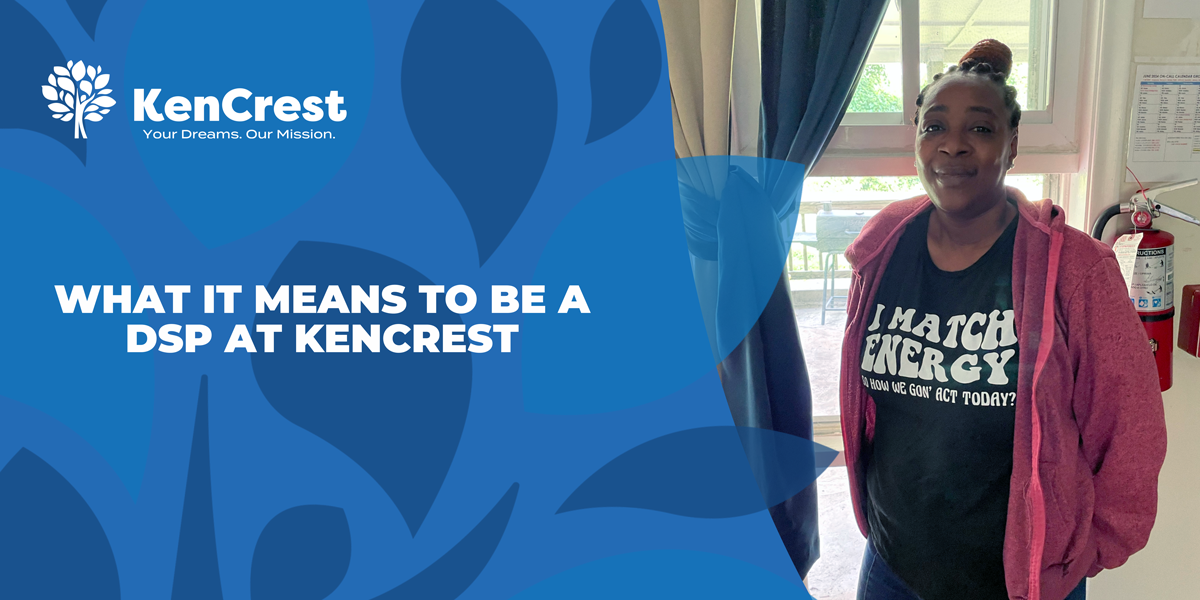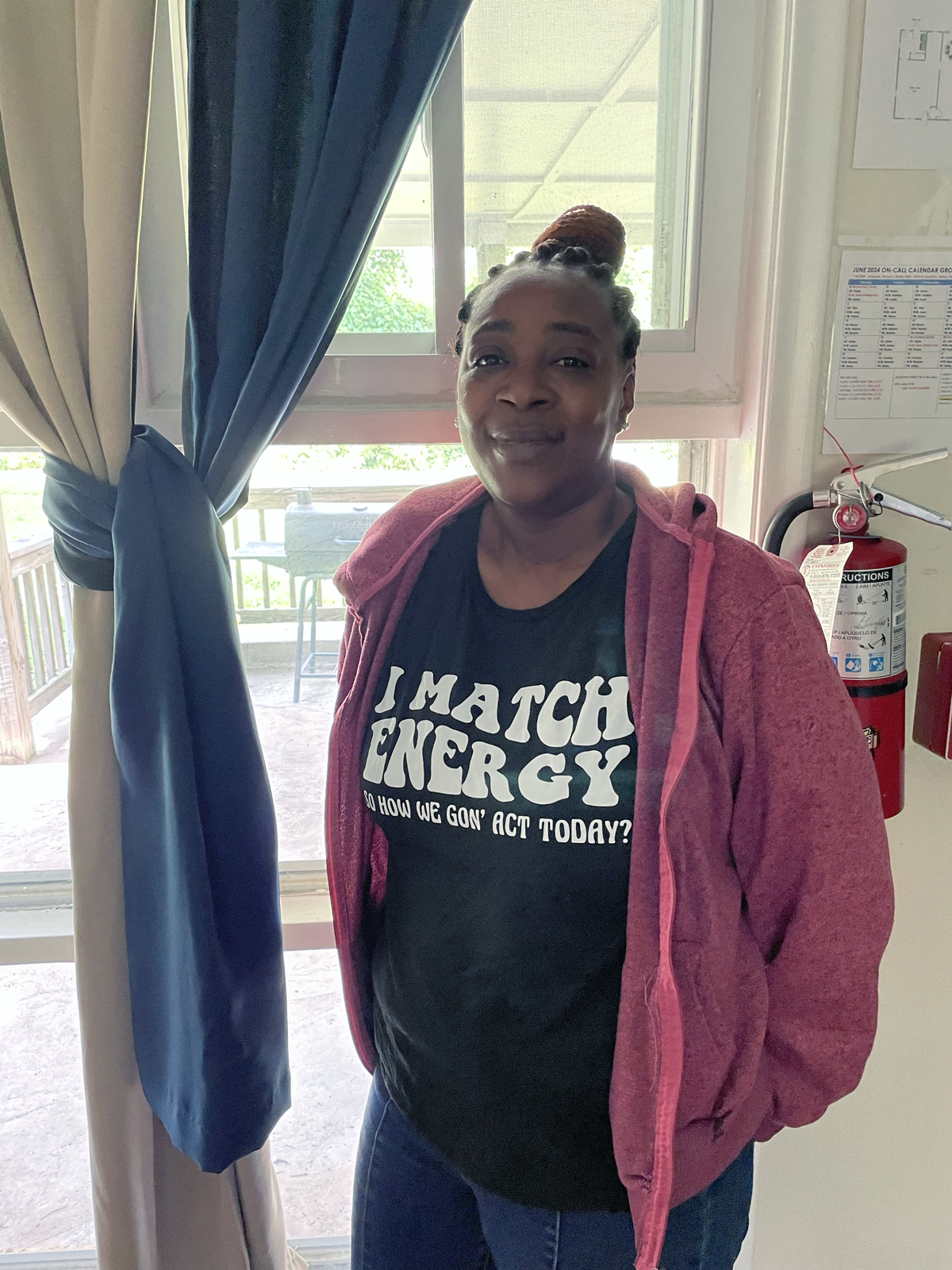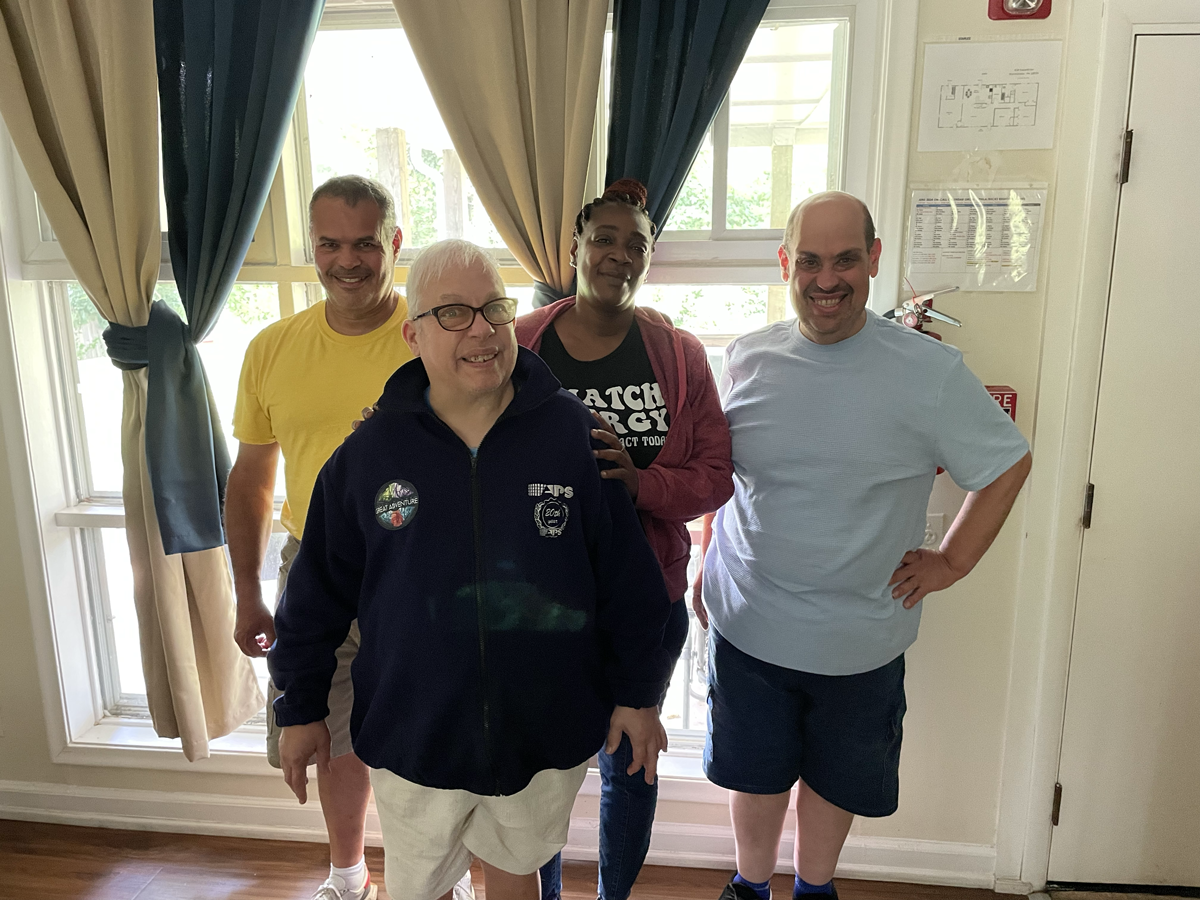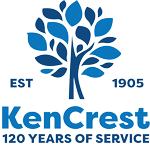
Marlo Maxwell has worked as a Direct Support Professional at KenCrest for four years, supporting individuals with intellectual or developmental disabilities.
By Sydney Kerelo
Walking through the front door of KenCrest’s Sweetbriar Adult Community Living Home, friendly faces and the smell of home cooking greet you. Standing at the kitchen counter stirring a pot of chicken and broccoli is Marlo Maxwell, a Direct Support Professional (DSP) who supports Raphael, Bill, and Danny, who live in the home.
Maxwell has been a constant presence in their lives for the past year. She assists them with their daily needs, takes them into the community, and ensures they lead fulfilling lives. Maxwell also cooks their meals, making sure to make any favorites, like chicken and broccoli, for Danny.
As per the U.S. Department of Labor, "a DSP is a crucial part of America's workforce and economy. They provide essential support and services to people of all ages with disabilities, including employment-related ones. They are instrumental in ensuring individuals with disabilities can lead independent and fulfilling lives."
Right out of high school, Maxwell became a Certified Nursing Assistant (CNA) at a nursing home near her. She was always drawn to helping others. For many years, she took care of her grandmother, who had dementia and lived to be 100 years old. At KenCrest, our DSPs are dream-makers who help our community members live meaningful lives.
She has always loved caring for people, and working in the nursing homes allowed her to do just that. She cared for between 10 and 15 patients per shift, but it became too much. After eight years, she wanted something different. She started looking for a new way to serve others and stumbled upon a Lead DSP position at KenCrest—but that home, unfortunately, shut down, and she was transferred to Sweetbriar.

“It was a lot of work working with that many people at once, but I am glad that I did it because that prepared me for the future,” says Maxwell. “If I can work in a nursing home, I can work anywhere.”
Now, she enjoys spending time with Bill, Raphael, and Danny and watching them thrive. Danny works five days a week at a work center, and Bill and Raphael attend various weekly music and work classes. They go bowling, attend bible teaching classes, and more.
“Being a DSP is so important because it helps the consumers get out into the community and have more interactions and socialization,” says Maxwell. “We walk around our neighborhood, they go swimming at the YMCA, and go to the gym.”
Recently, Maxwell earned her NADSP DSP-III certification, which acknowledges DSPs for their exemplary work in supporting individuals with disabilities. It is the highest level of credential that a DSP can achieve and represents a deep commitment to those they support.

This national certification program was created to recognize the contributions and competence of DSPs who apply and meet the standards. It teaches best practices, evidence-based skills, and knowledge in the workplace and encourages them to use that knowledge to best support the individuals they serve.
According to NADSP, to earn the DSP-III Certification, one must earn a DSP-II Badge, at least one Core Competency E-Badge from the Empowerment and Advocacy competency area, one from the Community Living Skills and Supports competency area, one from the Education Training and Self-Development competency area, and one from the Cultural Competence competency area.
Maxwell has worked at KenCrest for four years, supporting individuals with intellectual or developmental disabilities, and she loves it.
“We have good days and bad days, but it’s all about the work you do,” she says. “If your heart is not into it, then this isn’t the job for you. I really care about the guys I support, and we work as a team here.”
